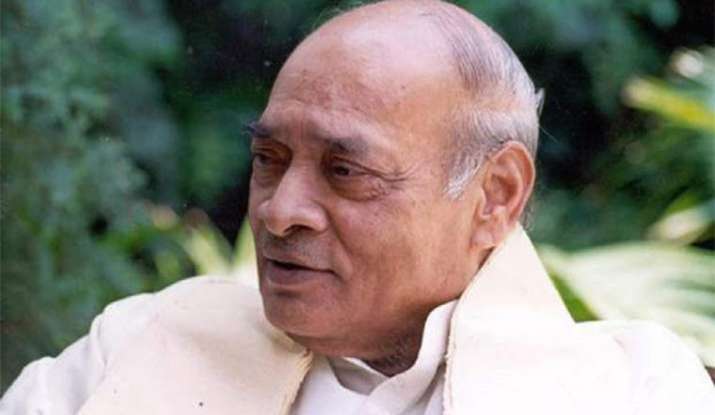
Please spare me your sympathy: Former PM Narasimha Rao after Babri Masjid demolition
After the demolition of the Babri Masjid on 6 December 1992, the Union Council of Ministers met and when they tried to explain how they all felt for the then Prime Minister PV Narasimha Rao, they replied: “Please give me your Give sympathy.”
This anecdote finds mention in senior Congress leader Salman Khurshid’s new book ‘Sunrise Over Ayodhya: Nationhood in Our Times’.
Khurshid says that the immediate shock of the “unimaginable event” gradually turned into a kind of numbness.
The demolition took place on Sunday and on the morning of December 7, the council of ministers gathered in an overcrowded ground floor room of the Parliament building, he says. The mood was gloomy, and there was gloom in the gathering.
“Obviously, most were at a loss for words, but Madhavrao Scindia broke the ice to say how we all feel for Prime Minister Narasimha Rao. The distraught PM’s reaction took us by surprise when he replied , ”Please spare me your sympathies”,” recalls Khurshid.
He also says that after Rao’s “hardcore reaction”, there was no further opportunity to discuss the subject again and the meeting ended.
Kalyan Singh’s Uttar Pradesh government was dismissed on 6 December and a week later, the BJP governments in Himachal Pradesh, Rajasthan and Madhya Pradesh were dismissed by the President, as advised by the cabinet. it is said.
Khurshid also writes that on the night of 6 December, he and some other youth ministers, “gathered to take stock of Rajesh Pilot’s residence, and then went to CK Jafar Sharif – thus raising two bold voices in the government”. .
He says that “calls were made to Principal Secretary AN Verma, who suggested that we talk to the PM. We spoke to the PM and suggested him that Rajesh Pilot be included in the group that was flying to Faizabad. Was.”
Rao “in turn told us to speak to AN Verma again, and thus the chase continued for a while, until we were told that the PM would not be available.” The government should intervene before the idols that were transferred during the demolition of the mosque were re-installed on the site”, they write.
There was a re-establishment, but the next morning when it seemed that a roof would be placed over the idols, the government proceeded to disperse the apparently diminished crowd of kar sevaks, he added.
According to Khurshid, the politics shaped by the temple-mosque battle put the Congress in an existential crisis in Uttar Pradesh and, after the temporary empowerment of the Samajwadi Party and the Bahujan Samajwadi Party, gave the BJP a springboard for dominance in the state and at the Centre. Gave. ,
“The Ayodhya saga was undoubtedly related to some organized groups among Hindus and Muslims trying to secure the leadership of their respective communities by tilting the scales in favor of a temple and a mosque respectively,” he says.
Khurshid claims that the Supreme Court has “put its stamp on history and in a way changed the last page. In the process, it has written itself in the history of Ayodhya”.
Only time will tell if this has laid the foundation for a grand reconciliation or perpetuated tensions of majoritarian forces versus right wing, or a mix of the two, he said.
Khurshid feels that the verdict provides the biggest opportunity to re-establish India as a secular society.
“It is a judgment that refutes the idea of a Hindu Rashtra and extends to the practical operation of sensitive religious concerns in a secular system. Maintaining the purpose and effect of the Places of Worship Act, among other matters, is a clear indication that The secular edifice of India and its Supreme Court’s commitment to constitutional principles has not only remained unwavering but has indeed strengthened,” he writes.
Khurshid says that his book, published by Penguin Random House, “is an attempt to see hope in a prudent decision, even if some people felt it was not entirely fair. When people start to disagree about what is fair. If so, then there are cracks which require attention beyond all the emotions that are natural to human beings”.
Read also: They seem poor in English, should be translated for clarity: Salman Khurshid
,